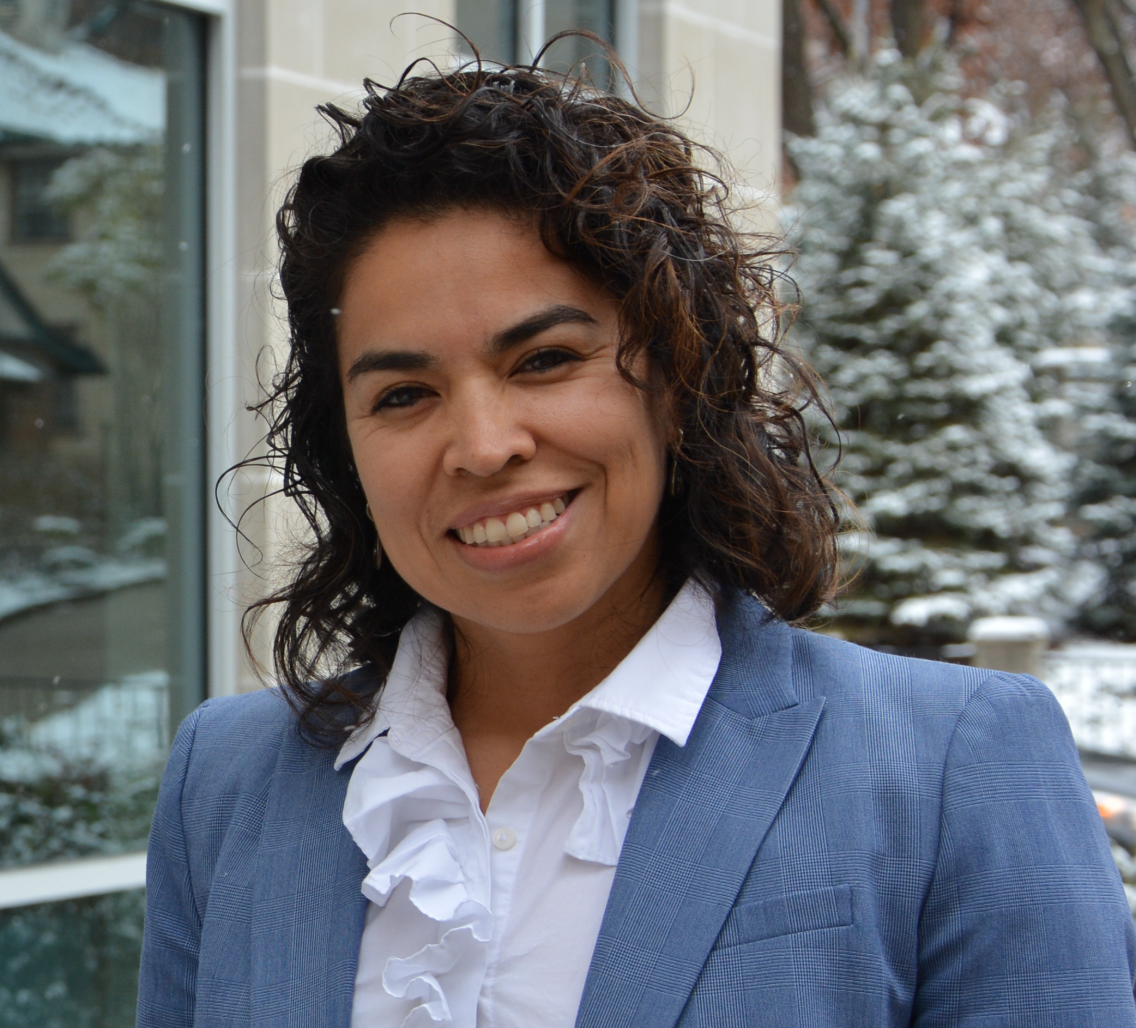Event Details:

Gelsy Torres-Oviedo
University of Pittsburgh
Abstract
Effective human locomotion requires adaptation of planned actions to compensate for sustained changes in the body or in the environment. For example, we adjust our gait prior to stepping on a slippery surface and update our movements as we move to walk more comfortably on it without falling. In this seminar I will discuss two processes that contribute to this locomotor adaptability: 1) the recalibration of internal representations of the body-environment dynamics for predictive motor control and 2) the adaptation of our perceived movements encoded by sensory signals. During the first part of the talk, I will show the recalibration of motor outputs in humans through the analysis of muscle activity. I will particularly characterize the muscle responses upon experiencing a novel walking environment (i.e., legs moving at different speeds). Our results demonstrate that the spatial structure (i.e., activity across different muscles) of these responses are indicative of the motor system’s recalibrated state. I will also show age-related decline in this recalibration capacity. We are interested in investigating the extent to which this decline is mediated by sensory deficits developed with healthy aging. Thus, during the second part of the talk, I will discuss the human acuity to detect a speed difference between their legs (which presumably drives locomotor adaptation in this context) and how it changes as subjects adapt their gait. We find that young individuals can detect 75mm/s speed differences (~7% weber fraction) with a 75% accuracy. Interestingly, we find through a drift-diffusion model, that the accumulation of sensory information to detect a speed difference incorporates sensory noise that is scaled with the stimulus size, contrasting previous results. Lastly, we track people’s perception of symmetric speeds (i.e., point of subjective equality, PSE) as they walk in the split-environment using a hidden-Markov model. We find that PSE is shifted by 300 mm/s from their baseline value, which is equivalent to a 60% recalibration of people’s perception. In sum, our findings indicate subject-specific adaptation of motor outputs and sensory inputs in locomotion and propose an avenue for investigating perceptual deficits and its relation to motor adaptation impairments due to healthy aging or brain lesions.
Related Papers
[1] Corrective Muscle Activity Reveals SubjectSpecific Sensorimotor Recalibration
[2] Split-Belt walking induces changes in active, but not passive,perception of step length